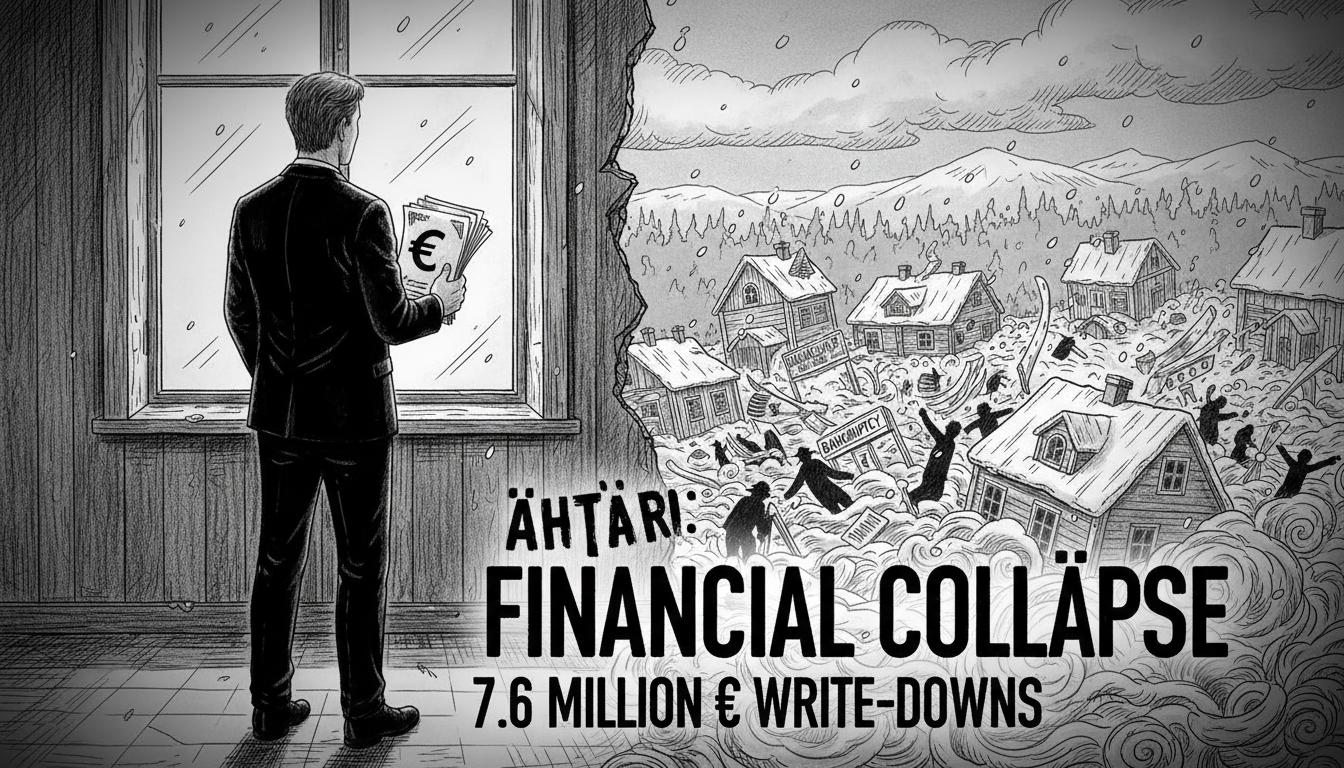The new city manager of Ähtäri, Finland learned about the municipality's severe financial troubles only after accepting the position. Perttu Sonninen started his role in August and immediately faced a 7.6 million euro write-down of receivables from city-owned tourism companies.
Sonninen revealed he would have reconsidered applying for the job if he had known the full extent of the financial challenges. The city is now in crisis management procedures with the Ministry of Finance assessing whether Ähtäri can maintain statutory services.
The financial problems became apparent when city-owned Ähtäri Eläinpuisto Oy and Hotelli Mesikämmen Oy required substantial write-downs. This pushed the city's balance sheet into deficit and triggered the need for bankruptcy proceedings for both companies.
Finland's crisis municipality procedure represents a serious intervention by national authorities. When a municipality enters this process, it signals fundamental problems in financial management and service provision. The Ministry of Finance evaluates whether the local government can realistically provide legally mandated services to residents.
Sonninen now earns 7,500 euros monthly plus meeting fees, significantly less than his predecessor's 130,000 euro annual compensation. He describes managing the city's corporate structure as trying to keep a puzzle together while pieces are falling apart.
The city's famous panda bears will return to China as part of restructuring efforts. A local association formed by current and former zoo employees purchased the animals and facilities in October, though their long-term viability remains uncertain.
Ähtäri's identity has long centered around its wildlife park, creating both economic opportunity and vulnerability. The city now hopes to diversify its image beyond tourism. Local industries include aluminum boat manufacturing, metal industry, and plastics production.
Municipal financial crises in Finland often follow similar patterns: overinvestment in tourism projects, complex corporate structures, and delayed recognition of problems. Several other Finnish municipalities show warning signs of potential financial distress according to recent assessments.
The situation highlights the challenges facing smaller Finnish municipalities competing for tourism revenue. Many have invested heavily in attractions without adequate risk management, creating vulnerability when projects underperform.
Sonninen acknowledges the enormous workload ahead, noting that every city manager in Finland would agree the job requires coordinating multiple threads simultaneously. He suggests every Finnish citizen should experience what it's like to be a city manager, if only briefly.
The road to financial recovery will require difficult decisions about service provision and economic development priorities. With the wildlife park's future uncertain, Ähtäri must reinvent its economic identity while managing immediate financial pressures.

